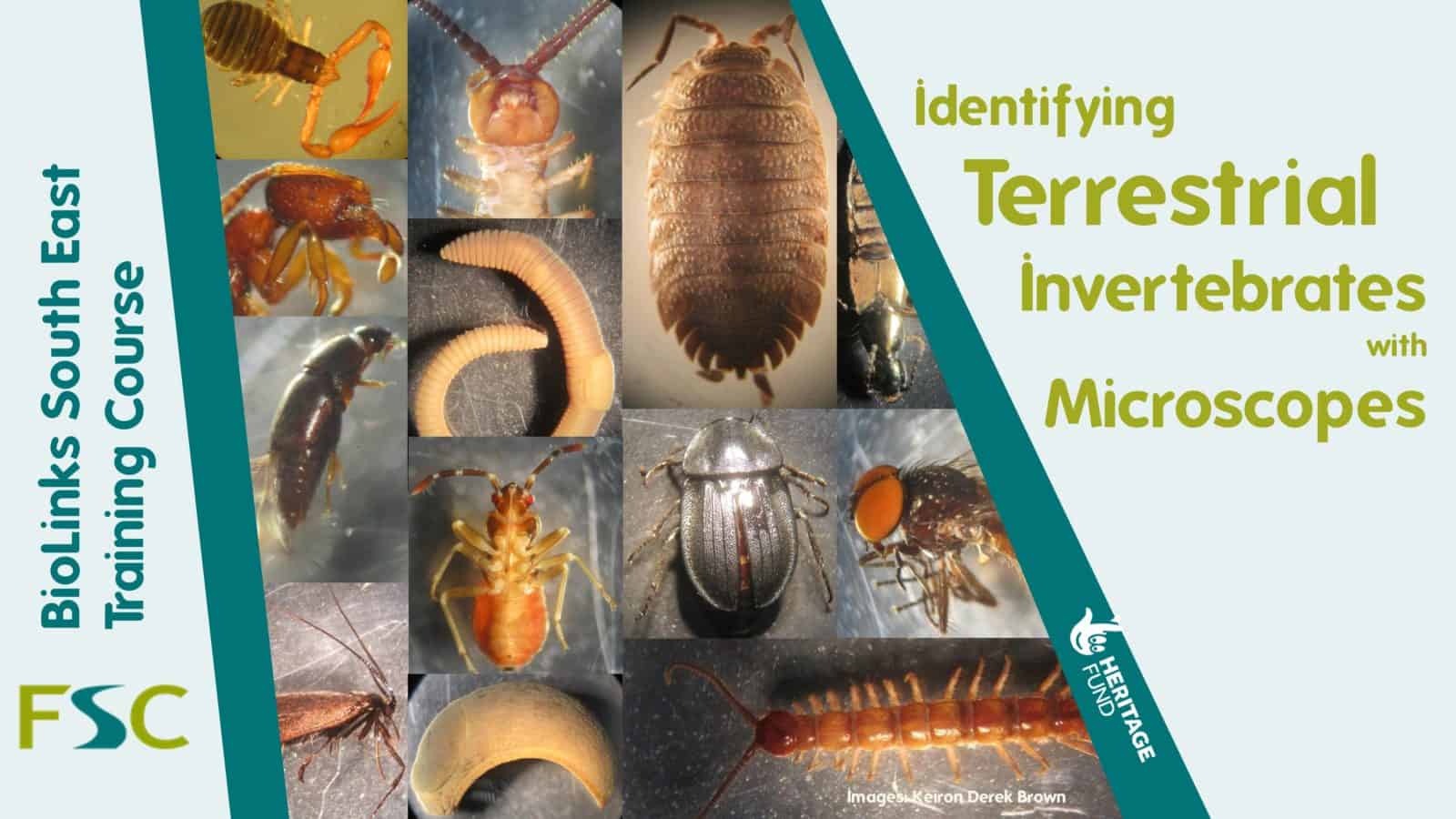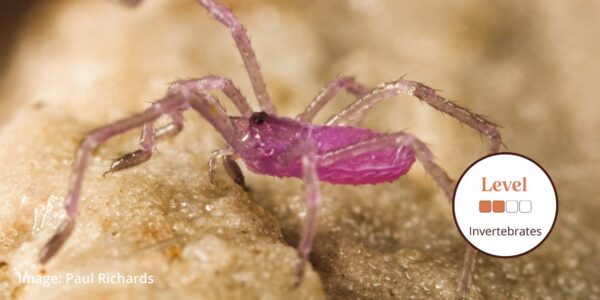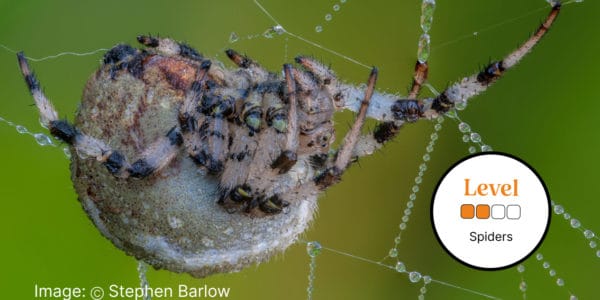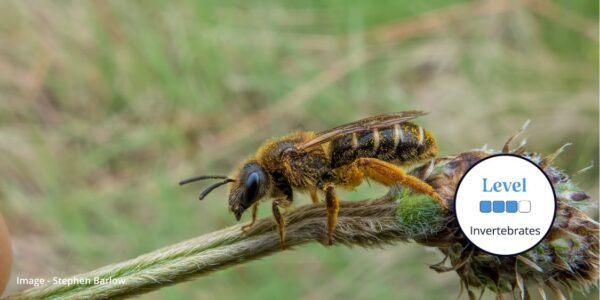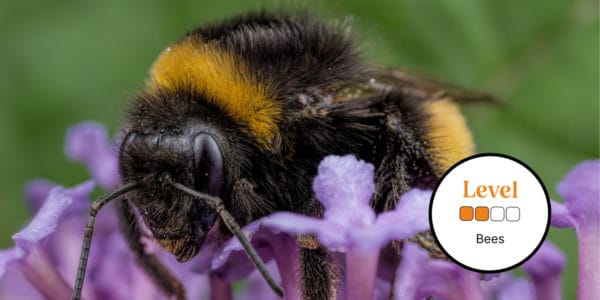In the UK alone there are an estimated 30,000 terrestrial invertebrates. They are vital to the economic health of our country, as they are crucial for soil health, food production, waste decomposition flood mitigation and pollination. Despite both their importance and diversity, many people have a superficial understanding of the morphological features that define different invertebrate groups.
This course is designed to be a gentle introduction to invertebrate identification for those that are have had limited or no experience of viewing them under a microscope. We will use microscopes and identification keys to look at what makes a spider a spider, and how to tell apart the larvae of beetles and flies. Our invertebrate tutor will guide you through a combination of classroom and lab sessions to build up your knowledge, skills and confidence. No microscope or invertebrate identification experience is necessary – this course is designed for absolute beginners!
-
- Certificate upon course completion.
- Please email [email protected] if you have any questions.
- Please note that this course will involve using specimens that have been killed and preserved.
This course previously titled Looking at Terrestrial Invertebrates with Microscopes.
This course is aimed at adults only and course attendees must be at least 18 years old in order to attend.
What will be covered during this course?
- An overview of the major groups of terrestrial invertebrates in the UK.
- An introduction to using and understanding identification keys.
- A beginners guide to setting up and using microscopes to view terrestrial invertebrates.
- Practical experience of using the FSC AIDGAP ‘Key to the major groups of British terrestrial invertebrates‘ to identify invertebrates to order level using external morphological features.
See the ‘Example Timetable’, ‘What’s Included’ and ‘Before You Attend’ sections below for more information about this course.
Course Fees
Subsidised Price: £10 Subsidised by the FSC BioLinks project for non-professionals eg. volunteers, biological recorders, wildlife gardeners, amateur naturalists and students. Available to UK residents only. Select ‘Attendee Subsidised: In Person’
Regular Price: £75 For professionals and residents outside of England. Select ‘Attendee: In Person’. Sold Out
Tutor: Keiron Derek Brown
Keiron Derek Brown is passionate about biological recording and studying invertebrates, and delivers a wide range of events and training opportunities through the Biological Recording Company. He is the national recorder for earthworms (running the National Earthworm Recording Scheme on behalf of the Earthworm Society of Britain) and the Chair of the Ecology & Entomology section of the London Natural History Society. He also sits on the advisory council of the National Forum for Biological Recording.
Between 2016 and 2023 he designed and managed the £1.6 million FSC BioLinks project for the Field Studies Council, with the aim of inspiring amateur naturalists to take up the identification and recording of invertebrate groups that are often forgotten and rarely recorded.
Tutor: Gino Brignoli
Gino is an active invertebrate recorder in London’s green spaces, with a particular interest in the ecologies of urban insects.
He has worked as a freelance field surveyor on behalf of the Forestry Commission; researched ant ecology and evolution, and taught entomology field techniques whilst employed as a Research Assistant at Queen Mary University of London. With a keen interest in ecology and entomology, Gino studied an MSc in Ecology and Evolution from Queen Mary and a BSc in Biodiversity and Conservation from Birkbeck College, University of London.
He has also previously volunteered with the Lepidoptera department and Soil Biodiversity Group at the Natural History Museum, and on the Thorn to Orchid and Water for Wildlife projects with the London Wildlife Trust. He now coordinates the BioLinks courses in London.
Covid Measures
In order to keep our customers and staff safe we ask that anyone attending our centres:
- wears a face covering when in shared indoor space (unless exempt).
- maintains social distancing.
- cleans their hands regularly.
- takes a Covid-19 test before they arrive.
Example Timetable
- Please arrive in time for the course to start promptly at 10:00 am.
- Refreshments will be available from 9.45 am.
- The course will end at 4:00 pm.
What's Included
- 6 hours of tuition.
- Certificate of attendance.
- Access to a microscope, identification resources and specimens.
Bursaries and Subsidies
FSC BioLinks
FSC BioLinks is an exciting project for FSC in the South East and West Midlands, bringing together existing volunteers with skills in biological recording and identification, and new volunteers.
This project provides subsidised training courses, learning opportunities and digital tools focussed on invertebrate identification for anyone involved or interested in biological recording, to build and strengthen the community.
Invertebrates provide us with many useful ecosystem services, like pollination and decomposition, which we cannot survive without but their numbers are declining. Few people know how to identify or record invertebrates meaning there is a lack of data.
We are delighted to have been awarded a grant of £1.23 million from the National Lottery Heritage Fund for this project.
Before You Attend
Getting to FSC London: Bushy Park
Information on getting to the site can be found here.
When you arrive at The Stockyard gate you may need to call the centre to open the gate. You can reach the staff on site on 020 8941 4398.
What to bring
- Notebook and pencil
- Lunch
- If you have your own copy of the 'FSC AIDGAP Key to the major groups of British terrestrial invertebrates' bring it with you so that you can make notes in your own copy.
Please note that this course will involve using specimens that have been killed and preserved.
There will be a member of staff with first aid training and access to a first aid kit on site. If you have special medical requirements please let us know as soon as possible so we can plan the course.
Sorry this course has ended

